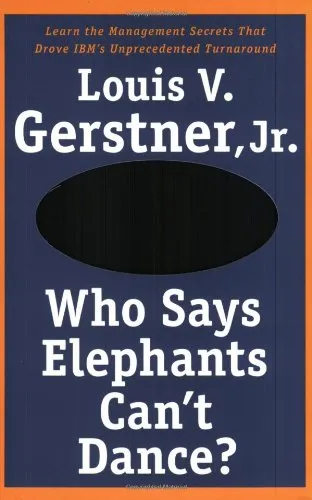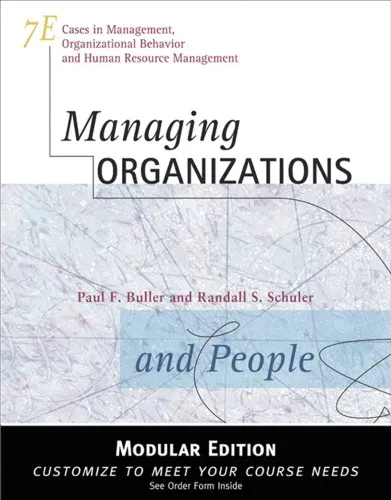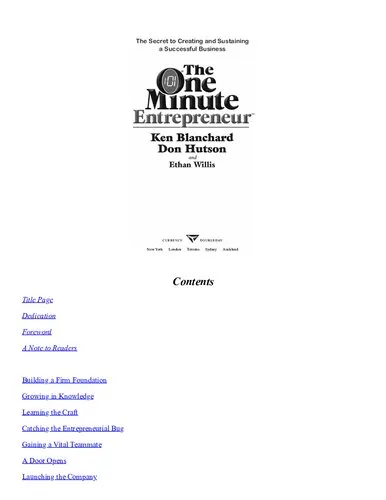Who Says Elephants Can't Dance?: Leading a Great Enterprise through Dramatic Change
4.3
Reviews from our users

You Can Ask your questions from this book's AI after Login
Each download or ask from book AI costs 2 points. To earn more free points, please visit the Points Guide Page and complete some valuable actions.Related Refrences:
Introduction
Welcome to the fascinating journey through the corridors of one of the most dramatic business turnaround stories in corporate history.
Authored by Louis V. Gerstner Jr., 'Who Says Elephants Can't Dance?' is a riveting exploration of his time at IBM, where he served as CEO from 1993 to 2002. There, he orchestrated an incredible transformation that pulled the company back from the brink of collapse. With keen insights and vivid narratives, Gerstner depicts how he embraced the challenges of leading IBM—a giant slow to adapt in an era of rapid technological change—and steered it toward a successful trajectory.
Detailed Summary of the Book
The book begins by setting the context of IBM's dire situation in the early 1990s. Once a juggernaut in the technology industry, IBM found itself struggling to keep pace with the industry's evolving landscape. Numerous challenges, including financial instability, complacent culture, and an inflexible business model, threatened its survival.
Gerstner, an outsider from the tech industry, assumed the helm of IBM at a pivotal moment. He outlines his strategic initiatives that prioritized customer-centric solutions and a unifying corporate vision. Through methodical restructuring and a relentless focus on execution, Gerstner revitalized IBM’s core strengths and capitalized on emerging markets like services.
The narrative spans across different areas such as corporate culture, strategic vision, and operational changes. It depicts how Gerstner tackled resistance and drove the organization's cultural shift towards teamwork and customer orientation. The book further delves into details on decision-making processes that emphasized agility and innovation, fundamental in IBM's resurgence.
Key Takeaways
- The Power of Leadership: Gerstner’s leadership exemplified adaptability, decisiveness, and strategic foresight—qualities crucial in steering IBM’s transformation.
- Cultural Change is Paramount: Transforming a deeply ingrained corporate culture was as vital as financial restructuring in IBM's recovery.
- Customer-Centric Approach: Shifting focus from product-centric to customer-centric operations significantly bolstered the company’s market position.
- Importance of Execution: Brilliant strategies are fruitless without disciplined and relentless execution.
- Embracing Change: The ability to adapt and innovate in response to a changing environment is fundamental for survival and growth.
Famous Quotes from the Book
"I came to see in my time at IBM that culture isn't just one aspect of the game—it is the game."
"Surround yourself with people who take their work seriously, but not themselves, those who work hard, and play hard."
Why This Book Matters
‘Who Says Elephants Can’t Dance?’ is more than just a memoir of a business legend. It serves as a powerful guide and a case study in effective management and leadership principles amidst adversity. Gerstner’s insights offer invaluable lessons on the significance of embracing change, the need for a coherent corporate culture, and a staunch commitment to customer success. Aspiring leaders, business students, and seasoned executives will find this book an enriching resource, as it underscores the timelessness of its fundamental lessons in an ever-evolving business landscape.
Ultimately, the book’s enduring relevance is a testament to Gerstner’s visionary leadership and his remarkable ability to lead organizational transformations against daunting odds. It is a masterclass in strategy and execution, offering both inspiration and practical wisdom to those eager to overcome seemingly insurmountable challenges in their own organizations.
Free Direct Download
You Can Download this book after Login
Accessing books through legal platforms and public libraries not only supports the rights of authors and publishers but also contributes to the sustainability of reading culture. Before downloading, please take a moment to consider these options.
Find this book on other platforms:
WorldCat helps you find books in libraries worldwide.
See ratings, reviews, and discussions on Goodreads.
Find and buy rare or used books on AbeBooks.
1370
بازدید4.3
امتیاز0
نظر98%
رضایتReviews:
4.3
Based on 0 users review
Questions & Answers
Ask questions about this book or help others by answering
No questions yet. Be the first to ask!














